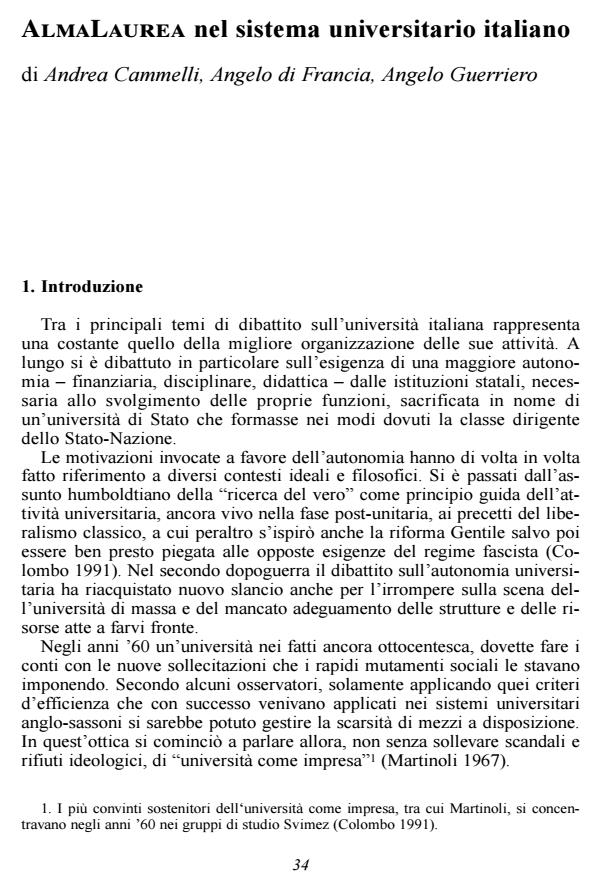AlmaLaurea nel sistema universitario italiano
Journal title SOCIOLOGIA DEL LAVORO
Author/s Andrea Cammelli, Angelo Di Francia, Angelo Guerriero
Publishing Year 2006 Issue 2004/94
Language Italian Pages 23 P. File size 74 KB
DOI
DOI is like a bar code for intellectual property: to have more infomation
click here
Below, you can see the article first page
If you want to buy this article in PDF format, you can do it, following the instructions to buy download credits

FrancoAngeli is member of Publishers International Linking Association, Inc (PILA), a not-for-profit association which run the CrossRef service enabling links to and from online scholarly content.
AlmaLaurea into the Italian university system Born in a narrow basement of the University of Bologna, the AlmaLaurea project has made a name for itself over the course of its first 10 years of activity as a highly qualified component of the entire Italian university system. It aims at monitoring the quality of the formative processes of graduates as well as their occupational condition and at facilitating the intersection between demand and supply of qualified labour. The institutionalisation as an inter-university consortium and the growing voluntary membership of an ever more substantial number of universities (36 universities, with 410,000 curricula vitae stored in a databank) has rendered AlmaLaurea a nearly indispensable point of reference for the universities’ governing bodies, for analysts, students, teachers, and for businesses seeking qualified personnel. AlmaLaurea’s uniqueness lies in having created an integrated system capable of guaranteeing documentation which is complete (universities are accepted into the Consortium on condition that they make available information on their entire student body), periodic (the surveys are taken at regular intervals), well-timed (year after year, a ‘snapshot’ of the universities’ internal and external performances may be obtained) and updatable (the databank is ‘living’ to the extent that the curricula vitae are updated by the graduates themselves and therefore keep up with the graduates’ professional pursuits). All of these factors are made possible by the extended use of information technologies, both for managing the graduate databank and for disseminating its services via the Internet.
Andrea Cammelli, Angelo Di Francia, Angelo Guerriero, AlmaLaurea nel sistema universitario italiano in "SOCIOLOGIA DEL LAVORO " 94/2004, pp , DOI: